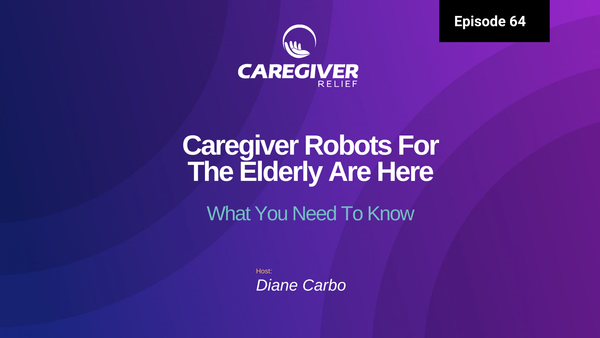Acid Reflux and Appetite : Can Acid Reflux Cause Loss of Appetite?
Can acid reflux cause loss of appetite? Acid reflux often leads to discomfort, a burning sensation, which can reduce your desire to eat. The irritation in the esophagus can make swallowing painful, further diminishing appetite. Managing acid reflux is key to maintaining a healthy eating routine.

Introduction to Gastroesophageal Reflux Disease (GERD)
Acid reflux, also known as GERD (Gastroesophageal Reflux Disease), is a condition in which stomach acid moves up from the stomach and into the esophagus. This can cause a range of symptoms, including heartburn, chest pain, difficulty swallowing, GERD symptoms like a feeling of a lump in the throat, and a loss of appetite.
When acid reflux occurs your stomach is not able to digest food properly, which can make it difficult to maintain an appetite. This can lead to uncomfortable digestive issues like bloating, nausea, and constipation, all of which can reduce your desire to eat.
There are a number of different factors that can contribute to acid reflux, such as diet, lifestyle, certain medications, and medical conditions. In some cases, surgery may be required to manage the symptoms of acid reflux.
Causes of Acid Reflux
Acid reflux, also known as Gastroesophageal Reflux Disease (GERD), is caused by the backflow of stomach acid up into the esophagus, resulting in an uncomfortable burning sensation. There are many potential risk factors for acid reflux that can contribute to this condition, including diet, lifestyle, and medical conditions.
Diet is one of the major contributing factors to acid reflux. Eating certain types of food can trigger an increase in acid production in the stomach, which in turn leads to heartburn and other symptoms. Common dietary culprits include beverages such as coffee, tea, and soft drinks; fatty, greasy and fried foods; spicy foods; citrus fruits and juices; tomatoes; chocolate; peppermint; onions; garlic; and alcohol.
Lifestyle habits can also play a role in the development of acid reflux. These include eating meals too close to bedtime, lying down after eating, wearing tight clothing, bending over or lifting heavy objects after a meal, leading a sedentary lifestyle, and stress.
Medical conditions can also cause acid reflux. These include pregnancy, hiatal hernia, certain medications, slow emptying of the stomach, and neurological disorders. Consult your doctor if you think you might have any of these conditions.
Effects of Acid Reflux on Appetite
Acid reflux, or gastroesophageal reflux disease (GERD), can cause a number of unpleasant symptoms, including heartburn and a sour taste in the mouth. One of the less commonly known symptoms is the effect acid reflux can have on an individual’s appetite and their ability to eat. This can lead to feelings of nausea, reduced hunger, and even a loss of appetite.
Typically, acid reflux symptoms are exacerbated when an individual is lying down. This can make eating uncomfortable and can reduce one’s desire to eat further. Other associated stomach issues like bloating and abdominal discomfort can also be caused by acid reflux.
Chronic GERD can lead to unintentional weight loss as individuals may avoid food to prevent discomfort, resulting in a loss of appetite. It is important to address this issue through medical consultation and dietary adjustments.
It is important to note that a loss of appetite due to acid reflux is different from anorexia nervosa, which is an eating disorder characterised by a persistent lack of appetite. If someone experiences significant or ongoing changes in their appetite or their eating habits, it is essential that they speak with a doctor for an accurate diagnosis.
Losing Weight with Acid Reflux
Losing weight can be challenging, especially when you have acid reflux. However, managing your weight is crucial for alleviating symptoms of gastroesophageal reflux disease (GERD). Excess weight can put pressure on the stomach, causing stomach acid to flow back up into the esophagus. Here are some tips to help you lose weight while managing acid reflux:
- Eat Smaller, More Frequent Meals: Instead of three large meals, try eating smaller, more frequent meals throughout the day. This can help reduce the amount of stomach acid produced and minimize reflux symptoms.
- Avoid Trigger Foods: Certain foods can exacerbate acid reflux, such as fatty, spicy, or acidic foods. Identifying and avoiding these trigger foods can help manage your symptoms.
- Incorporate Physical Activity: Regular physical activity, such as walking or yoga, can aid in weight loss and reduce stress, which is a known trigger for acid reflux. Aim for at least 30 minutes of moderate exercise most days of the week.
- Avoid Lying Down After Eating: Lying down immediately after eating can worsen acid reflux symptoms. Try to stay upright for at least two to three hours after meals to prevent stomach acid from flowing back up into the esophagus.
- Elevate the Head of Your Bed: Raising the head of your bed by 6-8 inches can help prevent stomach acid from flowing back up into the esophagus while you sleep. This can be done by placing blocks under the bedposts or using a wedge pillow.
Remember to consult with your healthcare provider before starting any weight loss program, especially if you have acid reflux. They can help you develop a personalized plan that takes into account your specific needs and health conditions.
Other Related GI Conditions
Gastroesophageal reflux disease (GERD) is often associated with other gastrointestinal (GI) conditions. Understanding these related conditions can help you better manage your symptoms and prevent complications. Here are some other related GI conditions:
- Peptic Ulcers: These are open sores that develop in the lining of the stomach or duodenum (the first part of the small intestine). Peptic ulcers can be caused by stomach acid, and symptoms can be similar to those of acid reflux, such as burning stomach pain and nausea.
- Irritable Bowel Syndrome (IBS): This is a chronic condition characterized by abdominal pain, bloating, and changes in bowel movements. IBS can be triggered by stress, certain foods, or hormonal changes, and it can sometimes coexist with GERD, making symptom management more complex.
- Inflammatory Bowel Disease (IBD): This is a chronic condition that causes inflammation and damage to the digestive tract. IBD, which includes Crohn’s disease and ulcerative colitis, can increase the risk of developing acid reflux and other GI conditions.
- Esophageal Cancer: This is a type of cancer that affects the esophagus and is often associated with chronic acid reflux. Symptoms can include difficulty swallowing, weight loss, and chest pain. Long-term GERD can increase the risk of developing esophageal cancer, making it essential to manage reflux symptoms effectively.
It’s essential to work with your healthcare provider to manage your acid reflux symptoms and prevent complications. They can help you develop a treatment plan that takes into account your specific needs and health conditions.
Treatment Options for Acid Reflux
If you suffer from acid reflux, it can have a major impact on your everyday life. Fortunately, there are a variety of treatment options available that can provide relief from the symptoms and help to prevent any further damage to your digestive system.
Diet and lifestyle changes can be an effective way of managing acid reflux and reducing the risk of future occurrences. It is important to maintain a healthy weight, get plenty of rest, reduce stress, and quit smoking. Eating smaller meals more frequently throughout the day is also beneficial as it reduces the amount of acid produced in the stomach. Practical tips such as avoiding large meals, eating slowly, and identifying trigger foods can help individuals modify their behaviors for better symptom control.
Over-the-counter medications such as antacids or H2 blockers can help to reduce acid production and provide relief from heartburn. In addition, proton pump inhibitors can be prescribed by your doctor to further reduce stomach acid and provide additional relief.
Home Remedies for Acid Reflux
Acid reflux is an uncomfortable condition which can cause a range of unpleasant symptoms, such as difficulty swallowing, heartburn and a sour taste in the mouth. For many people, these symptoms can be alleviated with lifestyle changes, diet modifications and over-the-counter medications. However, some people choose to try natural home remedies for acid reflux, to see if they can reduce their symptoms.
Certain foods can trigger the body to produce more stomach acid, which can complicate acid reflux symptoms. It is recommended to choose more alkaline or water-based foods to help minimize stomach acid production.
Some of the most commonly used home remedies for acid reflux include chewing gum, drinking aloe vera juice, eating yogurt, drinking ginger tea, avoiding late night meals, taking licorice supplements, baking soda, avoiding acidic foods and taking apple cider vinegar. While there is insufficient evidence to suggest that these home remedies are effective for everyone, many sufferers have reported that they have found relief from their acid reflux symptoms after trying some of these remedies.
It is important to remember that home remedies should not replace professional medical advice, and anyone who is experiencing severe or persistent symptoms of acid reflux should visit their doctor. However, if you would like to try some of the remedies listed above, it’s always worth talking to your doctor first for further advice.
Diagnosis and Medical Treatment
If you think you are experiencing acid reflux, it is important to get a diagnosis from a doctor. There are a range of medical treatments available, depending on the severity of your symptoms and the underlying cause of your reflux.
For severe or recurring symptoms of GERD, your doctor may recommend an upper endoscopy to further investigate esophageal issues.
Your doctor can assess your symptoms and advise you on the best course of treatment, which will likely involve lifestyle changes such as dietary modifications or an elimination diet, as well as medications to reduce stomach acid. If these treatments are not effective, your doctor may suggest surgery as a last resort.
Common medications used to treat acid reflux include antacids that neutralize stomach acid, H2 blockers that reduce acid production, and proton pump inhibitors (PPIs) that reduce acid production for longer periods of time.
Surgery for Acid Reflux
In some cases, the effects of acid reflux can be so severe that surgery becomes necessary. Surgery is usually seen as a last resort, however it is sometimes necessary in order to restore the proper functioning of the digestive system. There are several types of surgery that may be used to treat acid reflux and symptoms such as loss of appetite.
The goal of surgery is to reduce or eliminate the painful symptoms of acid reflux and help restore normal digestion. Depending on the type of surgery, the surgeon may modify the anatomy of the digestive system in order to reduce the likelihood of acid reflux occurring. The most common types of surgery for this condition include fundoplication, endoluminal therapies, and crural repair.
- Fundoplication: This is the most common type of surgery and involves wrapping a portion of the stomach around the esophagus in order to create a powerful barrier to prevent stomach acid from entering into the esophagus.
- Endoluminal Therapies: This is usually done laparoscopically and involves using a special device to place a small band of tissue (called a VALSLING) around the lower esophageal sphincter in order to create a tighter barrier that prevents stomach acid from moving into the esophagus.
- Crural Repair: This procedure is used when the lower esophageal sphincter (LES) is weakened and not closing properly. The surgeon will stitch the LES together to repair the sphincter's weakened state and prevent stomach acid from entering the esophagus.
It's important to remember that surgery for acid reflux is not a permanent solution and will require ongoing and careful management. Regular checkups with a doctor are necessary to ensure that the treatment is effective and that any potential complications are monitored.
Complications and Risks
Treating acid reflux can come with its own set of potential risks and complications. While there are various ways to treat the condition, it’s important to be aware of the potential setbacks that may occur. In particular, those who consider undergoing surgery for their reflux should take the time to weigh the risks associated with such a procedure.
Given the complexity of gastrointestinal issues, it is crucial to seek professional medical attention for symptoms associated with digestive and kidney diseases. The National Institute of Diabetes and Digestive and Kidney Diseases highlights the importance of managing these conditions effectively.
Common complications that can result from treating acid reflux include:
- Increased risk of infection due to the use of medications or devices,
- Excess bleeding during the surgery,
- Stomach perforation,
- Recurrence of symptoms after treatment.
It’s also important to keep in mind the potential risks associated with the surgery itself. These can include:
- Damage to other organs during the procedure,
- Scarring of the lining of the stomach and esophagus,
- Inability to completely close the lower esophageal sphincter (LES) after surgery,
- Adverse reaction to anesthesia,
- Post-operative nausea and vomiting.
Considering all of the potential risks and complications of treatment, it’s important to speak with your doctor about any concerns you may have before making any medical decisions. It’s equally important to discuss the benefits and potential disadvantages of each available treatment option, as well as how likely it is that you will experience any of these side effects.
Diet and Lifestyle Changes to Manage Acid Reflux
Making some changes to your diet can help to reduce the symptoms of acid reflux and prevent further episodes. When it comes to dietary modifications, it’s important to keep an eye on portion sizes while focusing on introducing more alkaline-rich foods into your meals. Eating smaller meals throughout the day can also be beneficial. Excess weight is a significant risk factor in the development of GERD and its related complications.
Examples of some of the alkaline-rich foods that can be beneficial for people with acid reflux include:
- Fruits such as apples, bananas, and melon.
- Vegetables such as carrots, broccoli, spinach, asparagus, and squash.
- Grains such as quinoa, oatmeal, and brown rice.
- Nuts and seeds like almonds, walnuts, and sunflower seeds.
- Low-fat dairy products such as yogurt and cottage cheese.
On the other hand, it is important to avoid certain foods which have been known to increase the severity of acid reflux, such as:
- Fried or fatty foods.
- Citrus fruits and juices.
- Spicy foods.
- Tomato-based products.
- Caffeinated drinks.
- Alcohol.
Foods to Avoid
When it comes to managing the symptoms of acid reflux, making some dietary changes can be very beneficial. Eating certain kinds of foods can trigger or worsen acid reflux symptoms, so avoiding these types of foods is an important part of managing the condition. Common food triggers are spicy foods, fatty, fried and processed foods, carbonated beverages, tomato-based products, citrus fruits, and chocolate. Additionally, some people may find that dairy products, caffeine, and alcohol are also triggers for their acid reflux.
It is important to note that everyone is different and what may worsen acid reflux for one person may not have any effect on another. Keeping a food diary can be a useful way to trial and track which types of foods are causing issues, and then these items can be avoided in order to reduce the severity of symptoms. Some people may also want to try eliminating certain foods from their diet for a period of time, and then reintroducing them after their symptoms have subsided to see if they are affected.
In conclusion, acid reflux, or GERD, is a digestive disorder that occurs when stomach acid flows back into the esophagus. It can cause several unpleasant symptoms, including loss of appetite, difficulty swallowing, chest pain, and regurgitation. While it can be uncomfortable and inconvenient, it is possible to manage and reduce the severity of acid reflux through lifestyle and diet changes, over-the-counter medication, and even surgery.
Some of the key takeaways include:
• Acid reflux is caused by a variety of factors, including diet, lifestyle, and medical conditions.
• Symptoms of acid reflux can include loss of appetite, difficulty swallowing, chest pain, and regurgitation.
• Treatment for acid reflux includes lifestyle changes, over-the-counter medications, and even surgery in certain cases.
• Home remedies such as dietary modifications, avoiding certain foods, and natural solutions can be effective in managing symptoms.
• It is important to consult a doctor to determine the best course of treatment for your specific condition.




